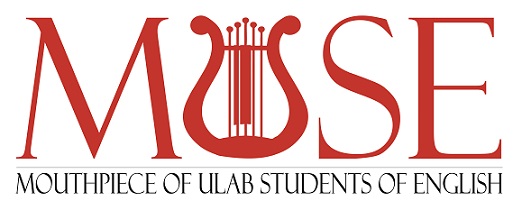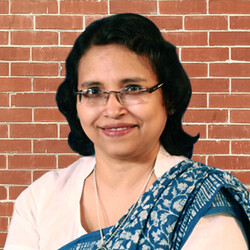In case you have been living under a rock, let us introduce you to Dr. Sohana Manzoor. Dr. Sohana Manzoor started her teaching career at BRAC University in 2002. She went for her PhD in 2009 and after completing her degree in 2015 she taught for about a year at Suffolk University in Boston. She has been teaching at ULAB since Fall 2016. She also serves as the Literary Editor at The Daily Star.
Our subeditor, Isra Tahiya Islam, present a valuable account of Dr. Manzoor’s insightful takes on a variety of matters below.
1. Throughout your experience in the field of education, have you ever noticed any particular toxic practice in this domain that you think should be addressed?
There are multiple toxic issues and I am not sure where to begin and which one in particular to address. But looking around in today’s world, I feel that there should be more of an understanding in the teacher-student relationship. Teachers are given the task of creating better humans, but how are the teachers treated?
In our culture, teachers are placed on a pedestal and are expected to act like the noblest creatures. In reality, most are not fairly paid and have to struggle with financial difficulties. I am not talking about a few highly paid academics, but the most that suffer in schools and colleges across the country. A society that puts so much emphasis on money and property these days, naturally humiliates these teachers in many ways. Even their students don’t respect them as they see their teachers engaging in private coaching business. Somewhere, this vicious cycle needs to be broken. If the teachers are not paid well, they will continue to look for other businesses to make the ends meet. Moreover, the best students would not want to be teachers. Actually, some of the best students may want to be university teachers, but certainly not school or college teachers.
In the recent past, a number of incidents have come up in the media that indicate clearly that the gap between the teacher and students have widened. And being a teacher myself, I find it disturbing and unsettling.
2. From a teacher’s perspective, what is the most common problematic behavior you have noticed in students?
To be honest, I find it difficult to find faults with my students. The world around us has changed drastically, and they probably have problems we never even imagined in our times. Having said that, I do think that there is a rising tendency for reading less and less among students. Everybody wants good grades, but few actually want to study or work hard. I have often heard students claim that one does not need to study to do well in the exams, but learn the techniques to do well. I honestly don’t know what that means. Perhaps for some, getting good grades and a good job is all that matters. But life is bigger and vaster than that. At some point, a person with such a tendency is bound to feel that s/he has missed the most important things in life. What I mean to say is that it is important to look at the bigger picture, and not merely small gains.
3. Nowadays, one has to acknowledge the existence of “Woke and Cancel Culture”. As an author and the editor of Star Literature at the Daily Star, have you observed any noteworthy changes in people’s literary practices (both on the readers’ and writers’ end) due to the spurt of the Woke and Cancel culture?
The world around us is changing fast. And in this ever-changing world, it is next to impossible to not be aware of the Woke or Cancel culture. After all, it makes us aware of the very real social, racial and gender problems and injustices not addressed even a few years ago. However, I see that it is still more of a phenomenon of the West where racial discrimination has blown out of proportion in the recent times. In our country, it is yet to become a pervasive term. But I do see some bold writing addressing gender and ethnic inequality. I see that more and more people are interested in talking and writing on “taboo” topics. The younger readers and writers are certainly more experimental and want to read and write about the kind of problems they are facing.
4. Where do you stand in the battle of political correctness versus artistic freedom? Could they exist together in any domain?
Art for art’s sake versus art for life’s sake? Since both the ideas have co-existed for centuries, I think they are both equally important. I would not go for mere political correctness because that would produce boring literature. But being aware of the ethical premises is important indeed. I certainly do not want to write crime-thrillers and stories about pedophiles and rapists just for the effects of sensationalism. I think it is important to blend them in—where I can make a statement about life. When I write, I think about representing life at its best and at its worst too. Our lives are full of so many stories and not all of them are happy stories, nor all of them sad. I want to write about those stories, and to make them successful as stories, I have to be aware of both political correctness and artistic freedom. Freedom comes with responsibility, right?
5. How do you think this cultural shift will shape the future of literature in both the academic and nonacademic spheres? And whatever changes you anticipate it to bring, from your perspective, will it be for better or for worse?
I do not think I can answer that question. “Better’ and “worse” are problematic words themselves. Can you tell me what you mean by those words? Something that seems “worse” in my dictionary, might appear “better” in somebody else’s. And vice versa. I can only say that we are looking at a very different world and it is not far away. The Covid pandemic has already changed things drastically. My only advise is “learn whatever that comes handy. The world that is waiting out there is very different from what you are seeing now.”6
6. Students of ULAB, who had the opportunity to know you, describe you as a very optimistic individual who is always open to new ideas and different opinions. And as a direct student of yours, I can testify to that. So, on behalf of all of us, I would like to ask you, what has been your mantra to keep such a broad and positive mindset?
The ability to change, develop and embrace new things. Never stagnate, never wait for the world to tell you that you are obsolete. Move forward, take charge of your life, and learn new things. And never allow another person to dictate what you should or should not do.
7. Would you like to suggest anything in particular that could make the campus experience for both the students and teachers of ULAB more positive?
It requires mutual respect to make the campus experience positive. Just as we have expectations from our students, students too, have much to ask from their teachers. There have been times when I was not able to fully engage in teaching and naturally, my students grew restless and unhappy. Similarly, when I discover that after giving 100% in the classroom, the students are not reciprocating, I go ballistic. Perhaps finding interesting things to work together with would help, not just routine workshops and boring tasks.

